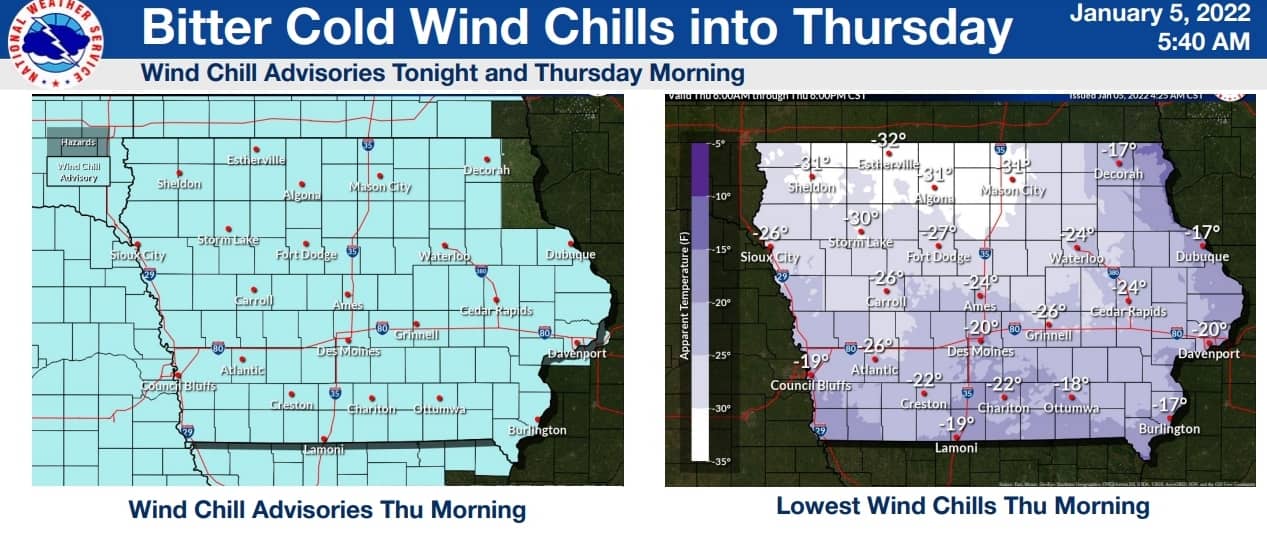
With overnight temperatures continuing to be below freezing, there’s a greater chance for hypothermia to occur.
Greene County Public Health Director Becky Wolf says hypothermia is when someone loses their body heat faster than their body can produce it, which is caused by prolonged exposure to very cold temperatures. Signs of hypothermia include shivering, exhaustion, confusion, fumbling hands, memory loss, slurred speech and drowsiness. Wolf notes if someone is showing these signs, get them inside a warm environment, remove any wet clothing and begin to warm them up.
“Warm the center of the body, that’s where all of your organs are at, (including) the chest, the neck, the head (and) the groin. You can also use dry layers of blankets, towels, sheets, and you can also skin to skin (contact).”
Wolf points out hypothermia could be worse than that.
“Somebody with severe hypothermia, they may become unconscious, they may not seem to have a pulse, or they may not be breathing. In that case, you need to perform CPR, even if the person appears dead, and continue on until you have help that arrives to relieve you.”
Wolf notes with either mild or severe forms of hypothermia are medical emergencies and require seeking medical attention.

